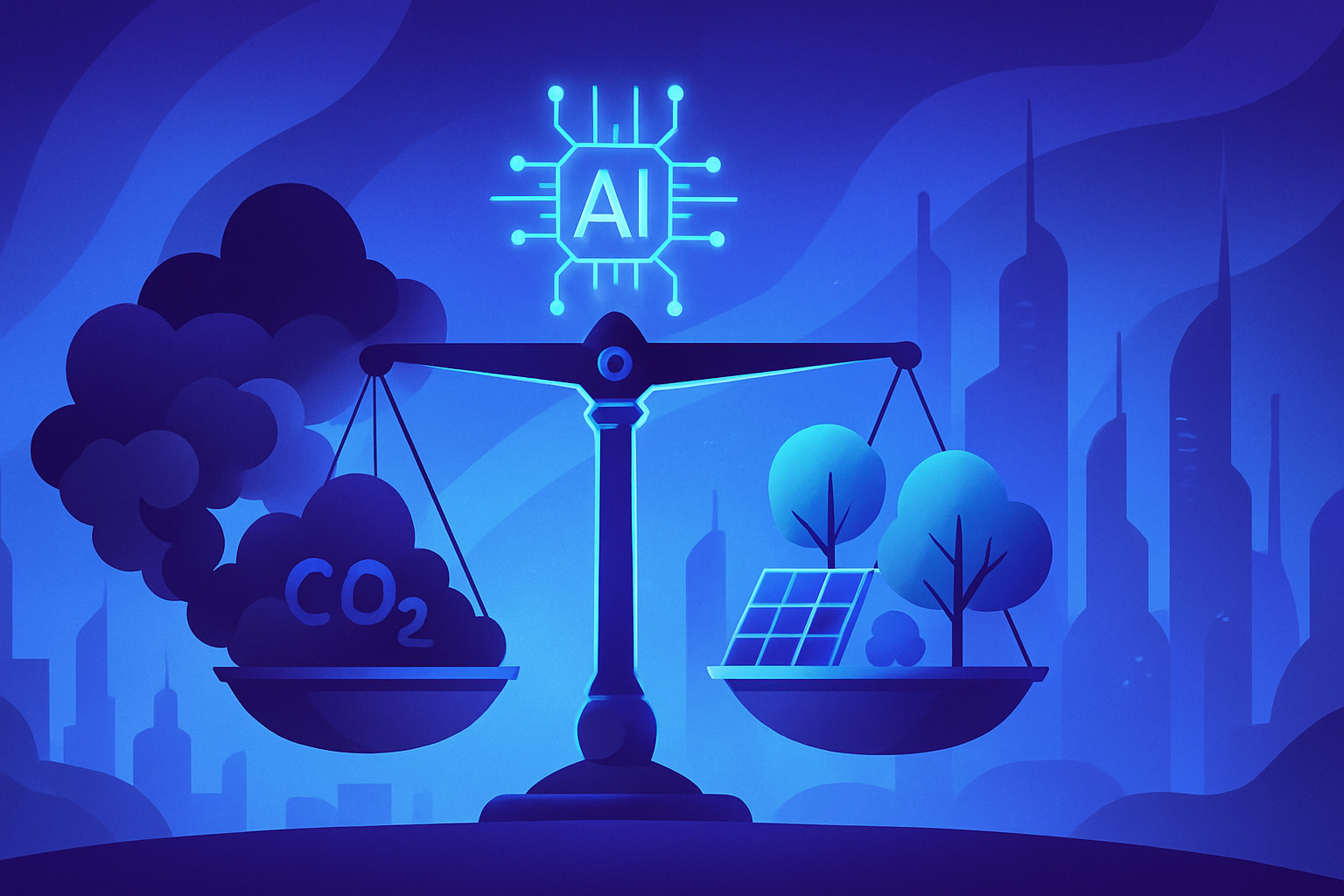The advances in artificial intelligence present *unforeseen* environmental implications. Some queries profoundly affect CO₂ emissions. *These prompts can generate up to 50 times more emissions* than others.
Researchers are evaluating this paradox between performance and sustainability, revealing the impacts of inappropriate use. Effective models in terms of responses risk compromising the health of our planet. *Considering each query is therefore essential to reduce our carbon footprint.*
Impact of AIs on CO₂ Emissions
Recent research conducted in Germany highlights a concerning reality about the environmental impact of artificial intelligence models. Researchers have measured the CO₂ emissions generated by various artificial intelligences during the processing of standardized questions. This questioning process involves complex conversions, leading to significant emissions, often unknown to users.
Reasoning Process and Energy Consumption
Maximilian Dauner, a researcher at Hochschule München University of Applied Sciences, emphasized that the reasoning method of the models strongly influences their carbon footprint. Models with reasoning capabilities generate up to 50 times more CO₂ than those providing concise answers. This increase in energy consumption comes from the production of tokens, essential elements for information processing, which vary depending on the types of queries.
Analysis of AI Models
Researchers evaluated a range of fourteen AI models. Each model had between seven and seventy-two billion parameters, and the tests involved exactly one thousand questions, covering various fields. Reasoning models, on average, required 543.5 tokens, while those providing shorter responses only needed 37.7 tokens. A high number of tokens inevitably boosts CO₂ emissions, without guaranteeing greater accuracy in the responses.
Model Optimized for Accuracy
The Cognito model, designed for elaborate reasoning, stands out for its efficiency, achieving an accuracy of 84.9%. However, it produced three times more CO₂ emissions compared to similar models oriented towards succinct responses. Such a situation highlights the prevailing dilemma between the accuracy of answers and environmental sustainability.
Variability of Emissions by Topics
The types of questions also significantly affect emission levels. Philosophical concerns or abstract algebra questions generate up to six times more emissions than simpler subjects, such as secondary-level history. The diversity of subjects queried increases the complexity of reasoning processes, thereby generating higher carbon footprints.
Responsible Consumption Practices
Researchers hope that these findings will encourage more thoughtful use of artificial intelligence. Adopting practices such as limiting prompts to concise responses can reduce emissions. For example, the use of high-capacity models should be restricted to tasks that truly require this power. By opting for suitable models, users can mitigate the environmental impact of their queries.
Energy Costs and Technological Choices
The study reveals that using models like DeepSeek R1 could produce emissions equivalent to a round trip between London and New York with 600,000 questions. Alternatively, the Qwen 2.5 model, by answering around 1.9 million questions, generates similar emissions while maintaining a comparable accuracy rate.
Informing Users about Their Carbon Impact
Researchers note the importance of informing users about the environmental cost of AI-generated responses. Knowing the true emissions associated with seemingly trivial actions, such as creating avatars, could stimulate greater caution in the use of these advanced technologies. This awareness plays a crucial role in steering towards a more sustainable use of artificial intelligences.
For further details, other studies and analyses address the climate issues associated with artificial intelligence, available on specialized platforms. These references provide essential insights into the evolution of AI and its environmental impact, particularly in terms of carbon emissions.
Frequently Asked Questions
What causes the variability of CO₂ emissions when using AI models?
The variability of CO₂ emissions is mainly due to the AI models used, their number of parameters, and the complexity of the generated responses. Models that involve advanced reasoning generate more tokens, thus increasing energy consumption and associated emissions.
How do prompts influence the CO₂ emissions of AIs?
Simple prompts often lead to concise responses and generate fewer tokens, while more complex prompts result in intensive use of reasoning capabilities, significantly increasing CO₂ emissions.
What is the relationship between the number of tokens and carbon emissions?
A model generating a large number of tokens generally produces higher CO₂ emissions. For example, reasoning models create many more “thinking” tokens per question, leading to an increased carbon footprint.
Are AI models with fewer parameters more sustainable?
Generally, models with fewer parameters tend to produce fewer emissions. However, they may also have lower accuracy in their responses, creating a trade-off between precision and sustainability.
Do the fields of questions affect CO₂ emissions?
Yes, topics requiring complex reasoning, such as abstract mathematics or philosophy, can lead to up to six times more emissions than simpler subjects, like history.
What measures can a user take to minimize the environmental impact of using AI?
Users can reduce emissions by asking precise and concise questions, avoiding the use of powerful models unless absolutely necessary, and being aware of the associated energy consumption.
Which AI model has been identified as the most accurate yet also the most polluting?
The Cogito model, with 70 billion parameters, showed great accuracy but also generated CO₂ emissions three times higher than those of similar models that provided more concise answers.
Do the study results on CO₂ emissions apply to all AI users?
The results may vary depending on the hardware used, geographical location, and types of models examined, which may limit their generalization. It is important for users to be informed about the emission costs associated with their AI queries.






